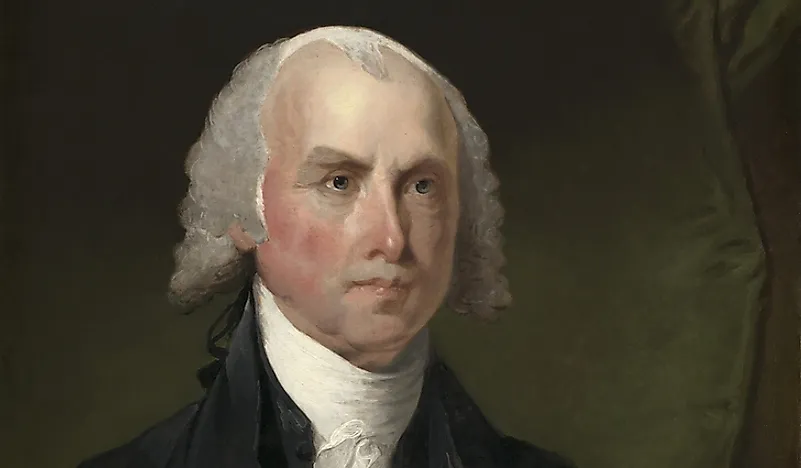Who Was President During the War of 1812?

The War of 1812 was between the US and Great Britain which was the greatest naval power at the time. President James Madison was in power throughout the entire period of war after being elected into office in 1808 and succeeding his mentor Thomas Jefferson. Despite his celebrated brilliance in matters of the constitution and governance, he displayed a questionable understanding of military strategy during the war. Some of the factors that resulted in the war included the restriction of United States trading activities by Britain, the desire to increase US territory, and the impressments of US seamen by the Royal Navy.
Early Stages Of The War
The easiest way to strike Great Britain at the time was by attacking Canada which was a British Colony. The strategy was also in line with the greater goal of pushing the British out of the American continent and expanding the United States. American officials were over-optimistic and overconfident about the invasion which unbeknownst to them was against a well-organized defense led by Sir Isaac Brock, the administrator of Upper Canada. In August 1812, the US troops led by General William Hull suffered the first humiliating defeat after they were chased and scared into surrendering Detroit to forces led by Sir Isaac Brock and Native American forces led by Chief Tecumseh. In the west US troops led by Commodore Oliver Hazard were having better luck and by September 1813 at the Battle of Lake Erie, US troops were able to place the Northwest Territory in American control. US forces were also able to retake Detroit at the Battle of Thames.
Late Stages Of The War
During the early periods of the War Great Britain was preoccupied with much more important war against Napoleon's armies and after winning in April 1814, the British were able to better focus on the American headache. Large numbers of British troops soon raided the Chesapeake Bay and later captured Washington DC in August 1814 where they burnt numerous government buildings including the White House. American soldiers were, however, able to repulse invasions by the British on Baltimore, New Orleans, and New York. The war came to an end after the signing of the Treaty of Ghent in February 1815.
Outcomes Of The War
Despite the heavy losses, the war was celebrated as a "war of Independence” leading to increased national pride. It also ushered in a period of great unity and patriotism. The Federalist Party was seen as unpatriotic, and its influence slowly came to an end. The war is viewed in great regard by Native Americans and Canadians who considered it a turning point in their struggle for self-governance.











